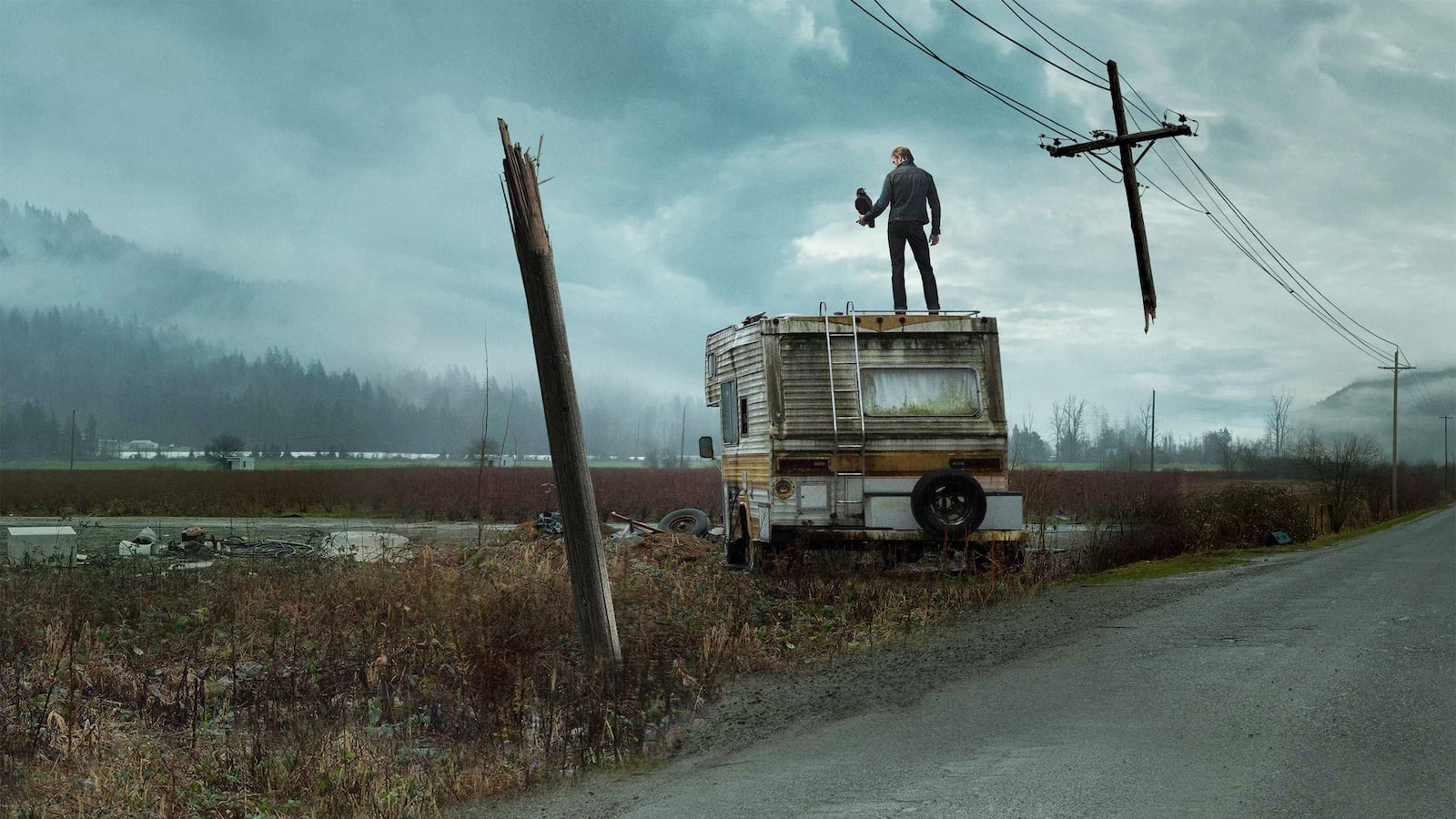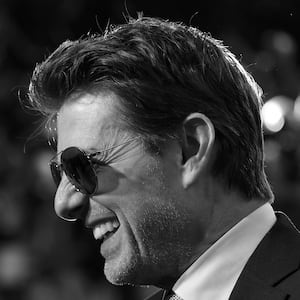Stephen King never wrote a novel more epic—in literal or figurative terms—than 1978’s The Stand, and the continuing power of its story about the battle for humanity’s soul in a pandemic-ravaged United States has only been enhanced, unfortunately, by our own ongoing COVID-19 crisis. Arriving at an all-too-relevant moment, CBS All Access’ adaptation of King’s magnum opus (premiering Dec. 17) is anything but escapism; scenes of chaotic hospitals, catastrophically-ill patients and empty streets often feel ripped from the nightly news. Yet the greatest asset of this apocalyptic nightmare isn’t superficial timeliness but, rather, its faithful and gripping translation of King’s end-times drama about the dangerous allure of individualism (and tyrannical leaders), and the vital necessity of togetherness in times of turmoil.
There are plenty of characters populating The Stand, and compared to ABC’s 1994 mini-series, this nine-episode affair (spearhead by showrunners Josh Boone and Benjamin Cavell) does justice to virtually all of them, and in particular, its villains. Chief among them is Randall Flagg (Alexander Skarsgård), aka The Walking Dude, a mysterious man in black who hails from places down below and, in the aftermath of a plague caused by the Captain Trips virus that’s annihilated 99 percent of the global population (and which the U.S. government created), sets up a bacchanalian Sodom in the ruins of Las Vegas for those with a taste for uninhibited sex, substance abuse, and gladiator carnage. Sporting weathered boots, a jean jacket with a yellow smiley-face pin, a scorpion belt buckle, and a giant pompadour, Skarsgård’s demonic baddie is a tall drink of evil, and though he doesn’t make his presence truly felt until a few episodes in, he’s a formidable fiend, embodied by the hunky actor with just the right blend of inhuman malevolence and charm.
Flagg hovers like a specter over The Stand as it establishes its numerous plot strands, most of which concern virus-immune Americans who share a dream about 108-year-old African American prophet Mother Abagail Freemantle (Whoopi Goldberg), and are thus compelled to find her and establish a safe-haven commune in Boulder, Colorado. Those protagonists include good-guy widower Stu Redman (James Marsden); professor Glen Bateman (Greg Kinnear); angry loner Harold Lauter (It’s Owen Teague) and his longtime crush Frannie Goldsmith (Odessa Young); plagiaristic rock star Larry Underwood (Jovan Adepo); deaf and mute Nick Andros (Henry Zaga) and his developmentally disabled pal Tom Cullen (Brad William Henke); and beauty Nadine Cross (Amber Heard) and her surrogate adolescent son Joe (Gordon Cormier). These individuals begin in disparate parts of the country and embark on their journeys with no clear direction in mind, and the series dramatizes their all-points-lead-to-Abagail trajectories while maintaining rigorous focus on their three-dimensional personalities, each of them boasting relatable flaws that complicate their relationships and chances for survival.
Nowhere is that more apparent than in the figure of Harold, an archetypal King cretin who comes across as a Unabomber-style incel psycho with a litany of resentments against bullies, adults and girls who slighted him, and a desire for violent retribution that he conceals behind cheery smiles (modeled, in a funny twist, after a grinning-and-pointing Tom Cruise paparazzi photo). Harold is often the sinister engine that drives The Stand, and Teague is the show’s undisputed breakout, his turn marked by derangement born from a lifetime of stewing over real and imagined grievances. Still, Boone and Cavell’s series is a carefully balanced affair, doling out attention to each of its many focal points, which also soon include Flagg’s right-hand Renfield, Lloyd Henreid (Nat Wolff), a sleazy and inherently weak-willed cop-killer that the antichrist enlists to oversee his crucifixion-happy Sin City empire.
In its maiden installments, The Stand leaps backwards and forwards in time—to pre-pandemic, the throes of the pandemic, the immediate post-pandemic, and the present—with about as much gracefulness as might be expected from such an overstuffed tale. If not always a totally smooth ride, it confidently condenses and reimagines the fundamental building blocks of King’s saga. While a few of those changes are for the worse—namely, Larry’s unforgettable trek through Manhattan’s Lincoln Tunnel, which here takes place in a far-less-suspenseful watery sewer—virtually all of the action is true to the spirit of its source material.
The Stand feels like authentic King, be it in its central performances—Marsden’s likably decent Stu; Henke’s amusingly cockeyed Tom; Heard’s unnaturally possessed Nadine; Goldberg’s spiritually searching Abagail; and Ezra Miller’s bonkers pyromaniac Trashcan Man—or its atmosphere of ordinary people navigating a once-familiar landscape that’s been scarily deformed by pestilence, fear, and hate. A soundtrack of relevant pop songs (Jefferson Airplane’s “White Rabbit”; Kiss’ “Lick It Up”; Blue Oyster Cult’s “Don’t Fear The Reaper”) enhances the proceedings’ general King flavor, as do references to the Book of Revelation, W.B. Yeats’ “The Second Coming,” and The Shining. Thanks to a collection of assured directors, the series’ visual language marries grand vistas of modernity laid to waste with intimate compositions whose framing and mirror imagery help subtly express the conditions of its major and minor players, some of whom are played by well-known actors in brief appearances.
Treachery, faith, courage, and the tug-of-war between mankind’s impulses toward compassionate societal collectives and licentious, anarchic authoritarianism are all facets of this sprawling doomsday legend, and Boone and Cavell allow their themes to emerge naturally from the predicaments of their myriad characters. Better still, they share with King an interest in the underlying causes that lead to catastrophic effects, especially in the case of Harold, who in another life might have found himself carrying an AR-15 into his high school—and who therefore becomes the perfectly exploitable weapon for a fire-and-brimstone monster like Flagg.
Those who’ve made it through all 1,152 pages of the expanded version of King’s novel will undoubtedly find some fault with a few of this version’s alterations and omissions. And it’s not yet known if this CBS All Access take sticks the landing, since press were only provided with the series’ first six chapters. On the basis of those episodes, however, this iteration of The Stand—rife with empathy and tension, horror and excitement, canny nods to likeminded pop-culture works (Time Bandits!), and even a blink-and-you’ll-miss-it King cameo—gets the haunting job done. It should please newbies and die-hards alike—provided, that is, that anyone presently has the stomach for pandemic-themed entertainment.


